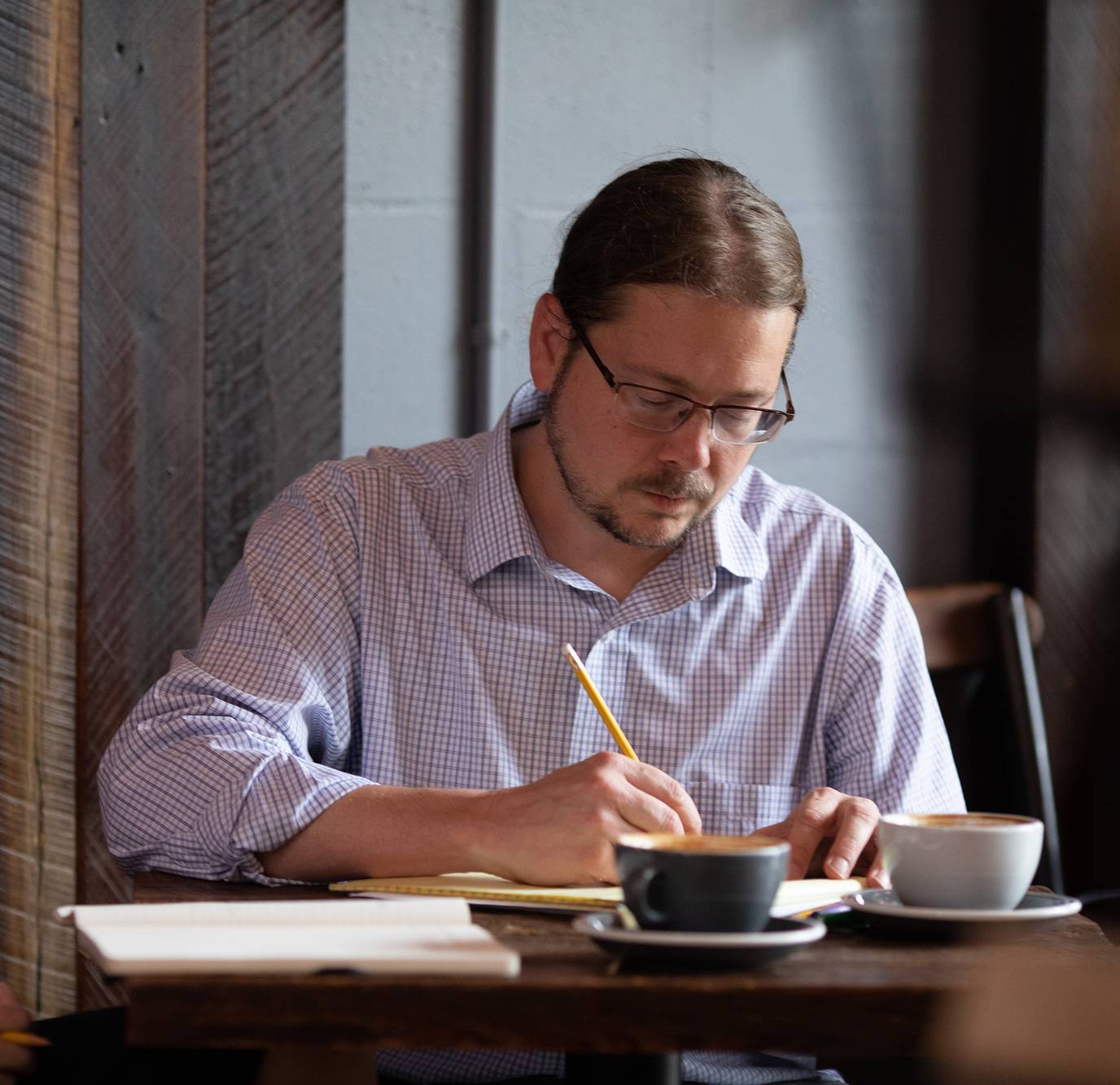Online Teaching Still Requires Personal Touch
August 10, 2020
By Matthew Forsythe PhD

In an article for the Orlando Sentinel, English professor Matthew Forsythe discusses how personal relationships are more important than ever amid challenges of the COVID-19 pandemic.
This article originally appeared in the Orlando Sentinel. It is republished here with permission.
Murphy’s name pops onto my screen, followed by the video link. It is early July, two months before the start of fall classes at Rollins College. I am sitting in my office in Winter Park. Murphy is in Flint, Michigan. We are meeting for the first time.
Behind him is a Florida Gators flag, with a Michigan flag on the opposite wall.
That could be trouble, I warn. My parents live in Ohio, and I earned graduate degrees from Tennessee and Georgia. In other words, we are destined to be enemies.
Murphy smiles.
In September, he will be my student in The Thrill of Victory, The Agony of Defeat: Sports and Sportswriting, a class that analyzes journalism, examines social and ethical issues in athletics, and teaches research and writing skills. In addition, Rollins College Conference (RCC) courses function as “homerooms” for incoming students. I am Murphy’s academic advisor, and our class will introduce him to the curriculum and resources at the school.
In a normal semester, our initial meeting would occur on SPARC Day, a morning of service-learning throughout Orlando, and our class would attend academic events and athletic competitions as a community throughout the fall.
But this fall will not be normal, so he and I are establishing a connection now.
Soon Allison and Molly log onto WebEx and join us. Peer mentors are experienced students who assist the RCC courses, organizing events outside of class and meeting individually to provide encouragement and guidance. They also serve as role models: Allison describes her summer internship with a car company, where she learned about crisis communication firsthand.
Murphy will be a member of the swim team, so I plan to add “Waterless World,” a Sports Illustrated article about swimmers training amid the pandemic, to the syllabus. As we discuss his schedule, I build credibility by knowing the statistics course in the business major that can fulfill his math competency.
Our conversation lasts 30 minutes. I answer questions and learn about Murphy’s interests, which I’ll use to personalize the class and our advising sessions. I look forward to working together, I say, except on the week that OSU plays Michigan.
I don’t know if Ohio State will play Michigan this November. The Big Ten has already canceled its nonconference games. Here in Florida, the Sunshine State Conference has postponed the fall sports season, but Molly hopes that her senior year on the women’s soccer team can be salvaged in the spring. Such decisions are made above my pay grade. I can’t be certain what my own classes will look like, but I am doing what is within my power to prepare.
Later in the week, I will talk with students from Longwood, Chicago, and China. I’ll reach out to my other courses, asking Intro to Creative Writing students about authors who excite them and warning those in Editing Essentials about my old-school love of Reed-Kellogg sentence diagrams.
It is a myth that professors have their summers free, especially this year. Over the past month, I’ve attended (online) town halls about social distancing in our classrooms, presentations from the Instructional Technology team, and pedagogy roundtables in which colleagues from anthropology to chemistry shared their strategies for hybrid and online delivery. I will participate in a sample classroom that includes both in-person and online students. As September nears, these activities will only increase in frequency.
None of this is unique to Rollins. At schools across the nation, teachers are planning for an unpredictable year, building trapdoors and alternate routes into syllabi. What if we have to quarantine for two weeks? What if plans shift mid-semester? How do we balance an academically rigorous course with the well-being of our students? Why do I share this? Because on news outlets and discussion boards, pundits and cynics are rolling their eyes at colleges moving online, questioning the value of a curriculum they incorrectly describe as overpriced YouTube videos. That’s not the class I’m designing.
I am preparing to teach Murphy in person. That might change. Even if it does, our course will be based on my personal relationship with him and 17 classmates. It will be flexible and adapt to the situation as it evolves. Over the coming year, whatever it holds, I will instruct and advise him with skill, building on the foundation of that initial smile.
Dr. Matt Forsythe is an assistant professor of English at Rollins College, where he directs the first-year and expository writing programs.
Read More
April 17, 2024
Makayle Kellison ’24 Earns Goldwater Scholarship
Makayle Kellison ’24 has earned a Goldwater Scholarship, the country’s most prestigious undergraduate scholarship for the STEM fields.
April 16, 2024
Class News: April 2024
In this monthly roundup, get the latest on what’s happening in the lives of your fellow Tars.
April 08, 2024
The Legacy of Fred Rogers '51 Lives on in Rollins' Music Department
Fred Rogers' nephew Dan Crozier, a professor of music at Rollins College, shares thoughts and memories of his uncle and previews the Mister Rogers: The Musician concert.
